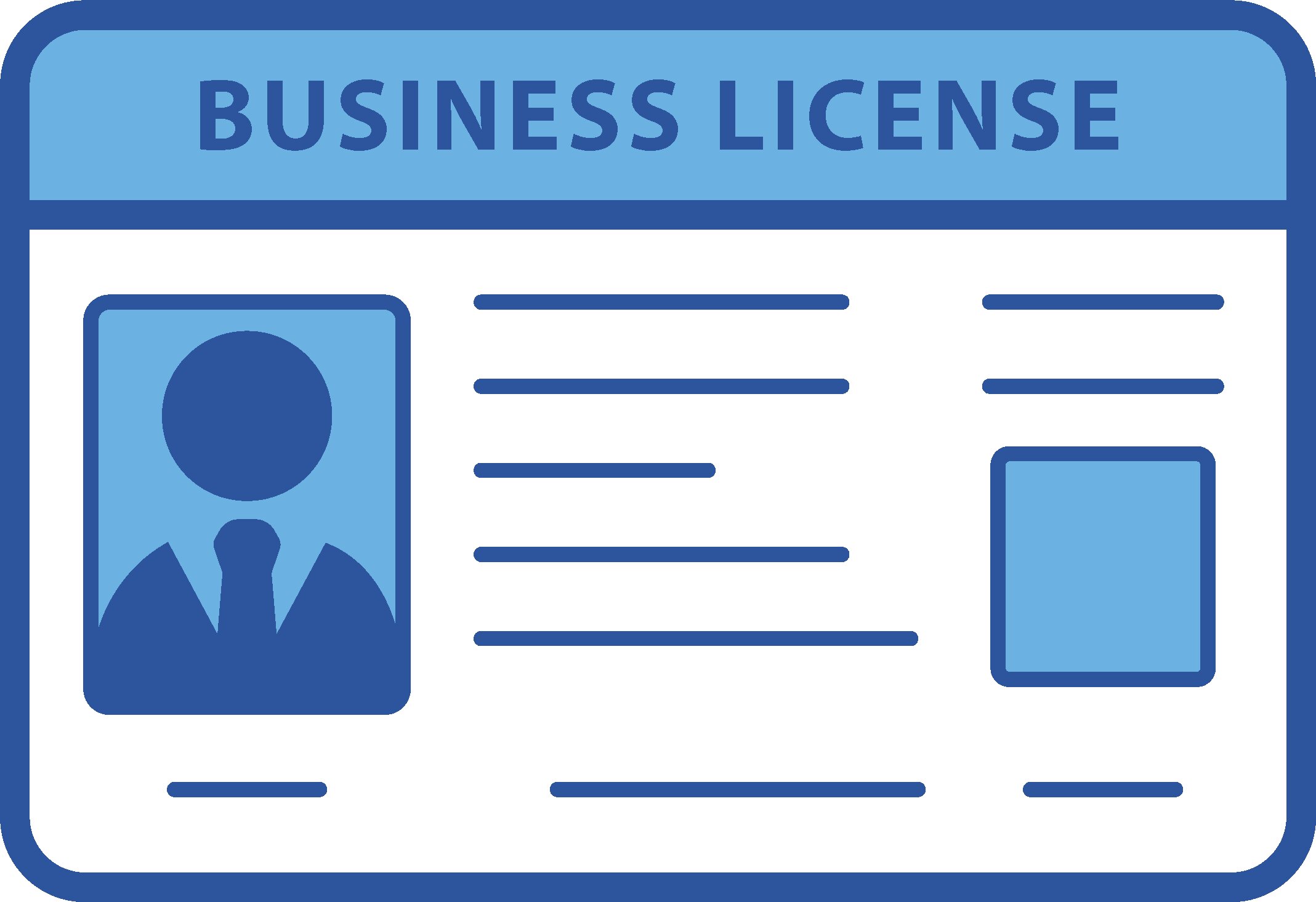Career Tips
Steps On How To Get A Business License In USA

When beginning a business, it can be challenging to determine which actions to follow to get up and running—and to stay compliant with complex regulatory requirements. Depending on the sort of business and location, you may be required to obtain one or more business licenses. Here’s all you need to know about which licenses you need and how to obtain a business license in your area.
What Is a Business License?
“Business license” is a broad term that refers to any type of license or permission required to conduct business and provide services in your area. Federal, state, county, and municipal agencies grant a variety of business license categories.
A business license’s goal may be to register your company with the government for tax purposes or to guarantee that you follow industry standards.
Do You Need a Business License?
Whether you need a license to conduct your business depends on where you live (and where your business is located) and the type of goods and services you offer.
Most states do not require a general business license—also known as a company operating license—to conduct business in their jurisdiction. You may still require a business license from your city or county. Certain business activity, such as agriculture or medicine, may require a license from a relevant state or federal regulatory agency.
If you run an internet business, you must register it and secure the necessary licenses in the state and city where you do business. If you’re a digital nomad, consult with your lawyer and accountant about the best strategy to establish your business.
Types of Business Licenses
To sell your goods or services, you may be required to get one or more of these types of business licenses in your state:
- Business operating license: This is what many people mean when they say “business license.” This is a license that lets you do business in your state or locality. In some states, you must obtain a business license from the state but, in others, you’ll need a business license from your city or county.
- Seller’s permit: If you sell goods in person or online, most states require this permit, which lets you collect sales tax from customers.
- DBA or fictitious name statement: A “doing business as” statement lets you operate the business under a name different from your legally registered business name. Depending on your state, you may need to register a DBA with your state or at the local level.
- Special permits: Many industries require special permits to operate. If you run a brick-and-mortar business, you’ll probably need permits for planning, zoning, building, signs and fire in your city or county.
- Industry licenses: You might need a special license to perform your services in industries like salons, electrical, childcare, medicine and law. You obtain these licenses through the relevant licensing board in your state.
- Federal licenses: Select industries, such as alcohol and firearms sales and aviation are regulated by the U.S. government and require a federal license or permit. The Small Business Administration lists which types of businesses require federal licenses and where to apply.
How To Get a Business License
The process to get a business license varies by state—and it’s not required in every state for every type of business. Follow these steps to determine whether you need a license and to apply with your state if you do.
1. Form Your Business Entity
You will require a business license in the name of your company. Before applying for a business license, you should first develop a business structure and name. That way, you won’t have to reapply or change your company license later.
Common legal structures for small businesses include:
- Sole proprietorship: A one-owner business is considered a sole proprietorship if you don’t file paperwork to establish any other kind of business structure. Sole proprietors are fully responsible for business debts and obligations, and they report business income as self-employment income on their tax returns. If you’re a sole proprietor, your own name is the official name of your business, though you may choose to use a DBA, such as Joe Jones, DBA Affordable Lawn Care.
- General partnership: A general partnership is similar to a sole proprietorship for tax purposes. For liability purposes, partners divvy up liability, and personal assets aren’t separated from the business. General partnerships use the partners’ last names as their official business name, and they may also have a DBA.
- Limited liability company (LLC): A simple business structure where profits and losses are passed through to owners for tax purposes, but personal assets are protected from business liabilities (like debts or lawsuits).
- Corporation: Like an LLC, a corporation protects personal assets from business liabilities. Corporations tend to have a more fixed operating structure and may be better than LLCs for attracting outside investors.
- Nonprofit corporation: A legal entity is organized similar to a corporation, except profits can’t be distributed to owners. Some nonprofits receive tax-exempt status.
When you file formation paperwork with your state to form an LLC, corporation, or nonprofit corporation, you will give your firm a name. Depending on your state, you may be able to obtain a DBA through the state, or you may be required to submit your DBA with your local government.
2. Apply for an Employer Tax Identification Number (TIN)
- Depending on how your state handles business licenses, you may be required to provide your federal TIN on your application.
- Sole proprietors who do not have employees can use their Social Security numbers instead of TINs, but all other business require a federal employment identification number, or FEIN.
- You can get an EIN from the IRS online. The process is straightforward, and you will have your number right away.
3. Determine Which Licenses You Need
Which types of business licenses you need depends on federal, state and local requirements and what kind of business you run.
You can find out which licenses and permits you need through:
- Your state’s Secretary of State office, Department of Revenue or similar agency that issues business licenses.
- Resources available through your local Small Business Administration office.
- Working with a business lawyer to determine and file the necessary licenses and paperwork.
4. Apply for a Business License
- You may be required to file for licenses and permits with state, county, and municipal agencies, such as a state sales tax permit, health permits through a department of health, and city planning permits.
- Look for materials from your state or local SBA office that compile all of the information you need in one spot, saving you from having to spend hours investigating each relevant entity. Step-by-step tutorials in your state may coach you through the procedure and provide links to relevant applications on various websites.
- Most states and many localities allow you to obtain a general business license online through the appropriate agency’s website. Industry-specific licenses may require a more complex application process.
- A business operating license or sales tax permit will most likely be obtained quickly. Other sorts of licenses and permits may require a more extensive assessment process.
5. Renew Your Business License
- Talk to your lawyer or read the fine print on your company license and permits to find out how frequently you need to apply or pay to renew them. You may be required to renew on an annual or five-year basis.
Frequently Asked Questions
- How much does a business license cost?
Fees for business licenses are very different between states and types of businesses. The amount of money you have to pay will depend on where your business is located and what kind of license you need. You might not have to pay anything since many businesses can run without a license.
- Is an LLC and a business license the same thing?
No. An LLC (limited liability company) is a legal and tax-related business structure that dictates the organization of your company. A business license is the authorization required for a company to conduct operations within a region, state, or locality. Additionally, a business license may encompass specialized licenses and permits that grant authorization for the operation of specific locations or the provision of particular services.
- Can you run a business without registering it?
If you don’t want to form an LLC or company, you can run your business as a sole proprietorship (just you) or a general partnership (you and one or more partners). However, partnerships and single proprietorships may still need to register DBAs and get business licenses from the government. Find out more about how an LLC is different from a sole company.
- What types of business licenses are possible?
The term “business license” can sometimes describe a general operating license but is often used to refer to several different types of permits. The most common types of business licenses include:
- A business operating license, also known as a business license
- A sales tax license, which allows businesses to sell goods and services
- A liquor license, which is necessary if your business sells or distributes alcohol
- Specialty licenses, such as for accounting, massage therapy, plumbing or legal counsel
Do you need an EIN to run a business?
In order to run a business, you do not need to have an EIN, or employee identification number. You will need to get one, though, if you want to open a business bank account or hire people. Find out more about what you need to do legally to start a small business.
Source: Forbes Advisor












